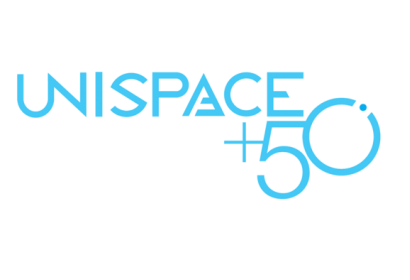Disaster risk reduction and combating climate change and its effects are integral parts of social and economic development, and are essential if development is to be sustainable for the future. This is recognized by the Sustainable Development Goals that were launched in September 2015.
The United Nations has recognized the potential of space technology for socio-economic development through three global conferences on the Exploration and Peaceful Uses of Outer Space (UNISPACE), the first of which took place in 1968. In 2015, the Committee on the Peaceful Uses of Outer Space (COPUOS) and the United Nations Office for Outer Space Affairs (UNOOSA) launched the UNISPACE+50 process as a way to mark the fiftieth anniversary of the first UNISPACE conference and chart the future role of COPUOS, its subsidiary bodies and UNOOSA in line with the 2030 Agenda for Sustainable Development. The UNISPACE+50 process, which consists of seven thematic priorities, will culminate in June 2018 with the launch of the SPACE 2030 Agenda.
Event page with further details.
Under the thematic priority “International Cooperation Towards Low-Emission and Resilient Societies”, the Committee envisions to define synergies between climate change mitigation efforts, disaster risk reduction and global development. It aims to develop a road map for enhanced resiliency of space-based systems and the affiliation of existing and future Earth observation, global navigation satellite system and telecommunication constellations for disaster risk reduction and climate change monitoring and mitigation.
To contribute to these objectives, the United Nations Office for Outer Space Affairs and the Government of Germany, through the German Federal Ministry for Economic Affairs and Energy (BMWi) and the German Aerospace Center (DLR) will conduct the United Nations / Germany Conference on “International Cooperation Towards Low-Emission and Resilient Societies”. The International Conference will take place in Bonn, Germany, from 22 to 24 November 2017. It is expected to bring together around 120 participants from the space and development communities, including decision makers, researchers and practitioners, and formulate recommendations as a way to provide input to the UNISPACE+50 process.
The deadline for applications is 18 August 2017.

